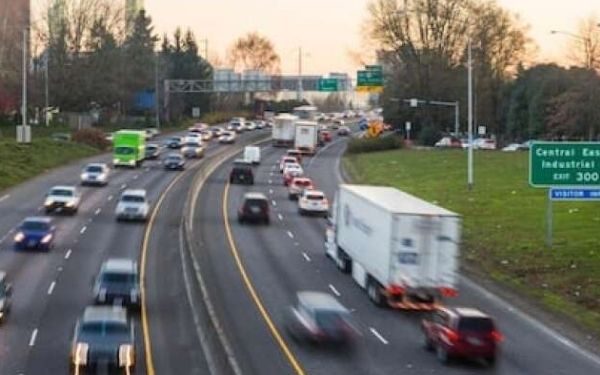A new revenue analysis reveals that House Bill 2025, Oregon Democrats’ proposed transportation funding plan, could generate more than $1.8 billion per year by 2029 — and surpass $2 billion annually by 2034.
This fiscal projection, dated Thursday, marks the first detailed look at the cost and impact of a wide-ranging set of tax and fee hikes aimed at overhauling Oregon’s transportation system. The estimate follows four public hearings held this week, where lawmakers and the public repeatedly questioned the absence of financial specifics.
Major Funding Increases
According to the analysis by legislative revenue staff, the proposal would outpace a previous $1 billion-a-year plan introduced in March. HB 2025 is designed to boost funding for road repairs, highway projects, public transit, and walking infrastructure — but it’s already facing opposition over its financial demands.
If passed, the bill would:
-
Increase Oregon’s gas tax by 15 cents per gallon (currently 40 cents).
-
Index the gas tax to inflation, ensuring it rises gradually over time.
-
Raise vehicle registration and licensing fees.
-
Introduce a 2% tax on new car sales and 1% on used cars over $10,000.
-
Implement a per-mile road usage fee for electric and hybrid vehicle owners.
-
Simplify taxation for diesel fuel and heavy trucks.
-
Mandate more audits of the Oregon Department of Transportation (ODOT).
-
Set aside funds for two highway megaprojects in the Portland metro area.
Revenue Breakdown by 2029
Here’s what the state expects to generate annually by FY 2029:
-
Vehicle sales taxes: ~$270 million
-
Gas tax increase: ~$230 million (may decline as EV use rises)
-
Vehicle registration and titling fees: ~$265 million
-
Transit payroll tax hike (from 0.1% to 0.3%): Over $400 million
-
Total new highway fund revenue: ~$1.5 billion
-
Transit and rail funding: ~$300 million
-
Total new transportation revenue: ~$1.9 billion
By 2034, this figure would top $2 billion annually, mainly due to inflation-linked increases in the gas tax.
EV Drivers Face New Mileage Fee
A central feature of the bill is a road usage charge for electric and hybrid vehicles. Set at 5% of the gas tax, it would mean EV drivers pay 2 cents per mile under the current rate. This aims to replace gas tax revenue as fuel-efficient and electric vehicles become more common.
However, officials warn the program will be expensive to set up and won’t generate significant revenue right away. The analysis confirms that Oregon will lose money on the system initially before it turns profitable in later years.
Uncertainty Over Trucking Costs
One of the more controversial aspects of HB 2025 is how it impacts heavy trucks, which studies show have already been overpaying for road maintenance. The bill proposes changes to the weight-mile tax, but estimates show large fluctuations — from $560 million in 2029 to just $24 million in 2031. This volatility has raised eyebrows among lawmakers on both sides.
Political Roadblocks and Public Pushback
Republicans argue the proposal places too much burden on taxpayers and are already preparing to push the bill to a public referendum, which could derail it altogether.
On the flip side, some advocates believe the bill doesn’t go far enough, especially when it comes to building electric vehicle infrastructure and expanding clean transportation options.
The League of Oregon Cities backed the bill Friday, warning of deteriorating infrastructure if action is delayed:
“If the Legislature does not pass a transportation package this year, communities across the state can expect more potholes, reduced road safety, and less ability to maintain infrastructure,” the group said.
Next Steps Unclear
As of Friday morning, no additional hearings had been scheduled for HB 2025. The bill remains a central topic of debate, as lawmakers weigh urgent infrastructure needs against concerns about rising costs and voter backlash.










